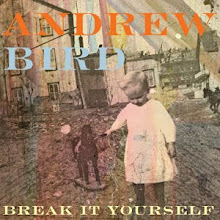A few weeks ago, my diagnostic skills were really challenged, and unfortunately, I failed the test. By the time I made a diagnosis, it was far too late for the animal to be saved.
On a very busy weekend, as I was running around like a headless chicken, I was presented with an older, large breed dog named Triton. He had been normal the previous evening. When the owners came outside, they'd found him collapsed in a pool of blood. They rushed him to us quickly. The owners reported that he'd been losing weight for several weeks, but otherwise he was healthy. He was a well-cared for and well-loved dog. The night before he became sick, he had been able to get out of his enclosure at home. This was the first time he'd ever gotten out. He was gone for an hour, and the owners had no idea what happened in that hour of time.
On physical exam, I had a quiet/depressed dog with pure hemorrhage coming form his rectum. There was no history of vomiting or other GI signs. His heart rate was very high, his body temperature was slightly low, his pulses were poor, and his gums were muddy and pale.
We started shock treatment on him - fluids to help stabilize his low blood pressure, a sedative to help him calm down, re-warming, and other treatments. Bloodwork was conducted and showed significant dehydration - a PCV of 71! and a normal lactate (see sidebar). The kidney, liver, and all other values were pretty much normal.
My tentative diagnosis was hemorrhagic gastroenteritis (see sidebar) secondary to Triton getting into something the previous evening. He started to respond well to treatment. His temperature came up, his blood pressure improved enormously, and his gums became pink and moist. With this excellent response to therapy, I assumed I had my diagnosis and need look no further. Xrays were on my list of things to do as he stabilized, but since he was doing so well, I elected to wait until there were more hands on deck to do them. He was placed in his cage on a strict hourly vitals and blood pressure monitoring schedule. One of my techs watched him like a hawk, and he seemed to be doing well. Blood pressure stayed normal, temperature stayed normal, and he rested quietly.
3 hours later, my technician went to take him for a walk. He took 2 steps, urinated, and collapsed. My technician put him up on our wet table and got a round of vitals, including blood pressure. They were rapidly worsening again (the bloody diarrhea had stopped).
Perplexed, I started at him, trying to see what I was missing. I requested the ultrasound machine, which was rolled to me. Ultrasounding his abdomen, I saw a lot of free fluid - never, ever a good sign. Tapping it with a needle, I got a syringe full of foul-smelling, brown fluid. Uh-oh. It smelled like intestinal contents.
On the spot, I told the owners that surgery was needed ASAP to find out where the fluid was originating. In the meantime, we were conducting more bloodwork. Results were still fairly unremarkable, and lactate was still normal. They never hesitated, and within 20 minutes, I was opening his abdomen.
What I found devastated me. Triton had a mesenteric volvulus. This occurs when the root of the mesentery twists on itsef, often several times. As a result, most of the small intestines are deprived of their blood flow. The small intestines were completely dead. Not part of them. ALL of them. There was nothing I could do, no salvaging Triton's intestines. He had to be euthanized on the table.
So, why did I miss the diagnosis? In a dog of his breed and with his clinical signs, a mesenteric volvulus should have been on my list of differentials immediately. It wasn't. So, why?
First, the getting out for an hour and running around was a total red herring. It had likely nothing to do with the formation of the volvulus, but I was distracted by this piece of history. He had never gotten out before, so naturally I assumed it was somehow related.
Secondly, I've seen 3 other cases of mesenteric volvulus, and in none of them was the patient ever able to be stabilized well. Since Triton initially responded well to our shock therapy, I assumed we had likely identified the underlying problem and were treating appropriately.
Third, of the other 3 I have seen, all of them have had excruciating pain on abdominal palpation. One of them almost bit my face off when I touched her belly, she was in so much pain. This dog didn't seem to be painful at presentation.
Fourth, Triton's bloodwork reflected dehydration but not much else. The normal lactate threw me off. Why was lactate normal in a dog with significant oxygen deprivation to the intestines? Because they were so twisted that the blood within them with an incredibly high lactate couldn't get back into circulation. Drawing blood from the front leg did not reflect what was happening in the strangulated intestines.
Lastly, I didn't take xrays immediately. A dog with hemorrhagic diarrhea that severe, I SHOULD have taken xrays immediately. Instead, since he responded so well to treatment, I elected to wait until we were less busy, and I had a technician to do them. At the time, xrays didn't seem emergently necessary.
The one bright spot in the whole dismal case? Mesenteric volvulus has a mortality rate of almost 100%, even when caught by the very astute (obviously not me) within minutes. The small intestines cannot handle being cut off from their blood supply for even minutes. Thus, by
the time the problem is found generally, there is nothing that can be done.
It's cold comfort to me. I should have known or at least had some idea.
You can bet though that I won't miss it next time.









